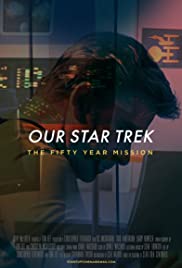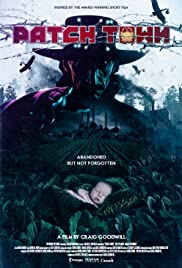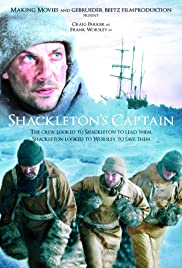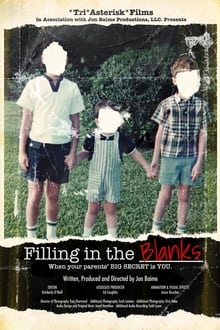
A portrait of the last surviving vinyl record shop in Teesside, North East England, at a time when independent record shops were closing in the UK at a rate of one every three days. A distinctive, funny and intimate film about men, the North and the irreplaceable role music plays in our lives. High Fidelity with a Northern Accent.
You May Also Like

The deeds of a professional musician who abandons his trumpet and family to live the clandestine life of an armed revolutionary for Puerto Rican independence.

An exploration of Gene Roddenberry’s Star Trek vision of humanity. After 50 years of Star Trek, how far has humanity come? How much further can we go?

Patch Town, inspired by the award-winning short film of the same name. After years in a loving home, Jon, a toy, was forgotten, deserted and ultimately betrayed by his adoptive mother. He returns to live a sad life as a worker on the line; a life of factory work and oppression in a place where hundreds of cabbage babies are born every day. The thankless task of shucking, picking, and processing these newborns to go out into the world and to their new mothers has taken its toll on Jon. With each new birth, Jon slips deeper into sadness, lamenting the days when life was good and he was loved.

In 1914 Sir Ernest Shackleton’s Imperial Trans Antarctic Expedition headed for the South Pole and disaster.
Shackleton’s Captain reveals the truth behind the spectacular survival of all the crew and shows how one man’s extraordinary skill and unsung heroism made it possible: Frank Worsley, Captain of the expedition ship, Endurance.

Where do I come from? For some, the question has a simple answer — for others, the truth can be much more complicated. With the rise in popularity of at-home DNA tests, it’s now easier than ever for people to uncover their family history and, sometimes, things their parents wish would stay buried. Interested in learning more about his family heritage, director Jon Baime took an at-home DNA test and uncovered a family secret that has been hidden for half a century. Featuring in-depth interviews with Jon’s siblings as well as a treasure trove of family photos and films spanning 70 years, FILLING IN THE BLANKS takes audiences on a journey as Jon explores the meaning behind his discovery and expands on what it means to be family.

The Eugenics Crusade tells the story of the eugenics movement and its long history in the United States, from its beginnings in the study of heredity, to its rise as a popular movement promising to uplift the human race through state sponsored sterilization, to its influence on immigration laws designed to close our borders to groups deemed genetically inferior.

In the documentary Last To Know political prisoners, sent to jail for openly opposing the East German regime that existed until the German reunification in 1990, talk about their times of trial and their lives today. Neither they, nor their families have come to terms with what happened.

A national public health emergency is sweeping through North America. In this close examination of the opioid crisis – the most deadly epidemic to devastate the US in recent years – medical professionals come together to deliver their verdict. Narrated by Ed Harris, Do No Harm shows us the devastating effects of these drugs, and casts light up on those who must be held accountable.

He made perhaps the most dramatic shot in the history of the NCAA basketball tournament. He’s the only player to start in four consecutive Final Fours, and was instrumental in Duke winning two national championships. He had looks, smarts and game. So why has Christian Laettner been disliked so intensely by so many for so long? Maybe it was the time he stomped on the chest of a downed player, or the battles he had with his teammates, or a perceived sense of entitlement. But sometimes, perception isn’t reality. “I Hate Christian Laettner” will go beyond the polarizing persona to reveal the complete story behind this lightning rod of college basketball. Featuring extensive access to Laettner, previously unseen footage and perspectives from all sides, this film will be a “gloves-off” examination of the man who has been seen by many as the “Blue Devil Himself.”

After former Afghan refugee and photographer, Muzafar Ali, discovers that Afghans have been an integral part of Australia for over 160 years, he begins to photograph their descendants in a search to define his own Afghan-Australian identity. The Cameleer Descendants are a mix of Aboriginal, Afghan and Colonial Australian and as Muzafar meets and connects with the resilient but traumatised community he learns about his new country’s complicated history. His journey is interrupted when Afghanistan is handed back to the Taliban by the US and International Forces, and he races to help his friends and colleagues left behind.

Yolngu warrior, shaman and father Djalu Gurruwiwi, with some help from global pop star Gotye, must find a way to bring two worlds together to save his culture.

Up until just over 30 years ago, when the desktop computer debuted, the whole design production process would have been done primarily by hand, and with the aide of analog machines. The design and print industries used a variety of ways to get type and image onto film, plates, and finally to the printed page. Graphic Means is a journey through this transformative Mad Men-era of pre-digital design production to the advent of the desktop computer. It explores the methods, tools, and evolving social roles that gave rise to the graphic design industry as we know it today.